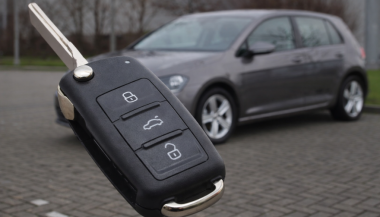Your car key is one of those things you don’t really think about — until it breaks. Whether it’s the worn-out buttons, a cracked shell, or a battery that gives up at the worst possible moment, an aging car key can cause more than just annoyance. But here's the good news: you can restore your key to like-new condition easily, affordably, and from the comfort of your home.
In this complete guide, we’ll show you how to choose the right replacement key shell for your car and why the Panasonic CR2032 battery is a trusted choice to keep your key fob performing reliably.
Part 1: How to Choose the Right Car Key Shell
Think of your key shell as a protective layer. It shields the sensitive electronics inside — the buttons, circuit board, and transponder chip — all of which are essential to operating your vehicle. When the case begins to wear down or fall apart, it’s time to replace it.
1. Know Your Car's Make, Model, and Year
Key shells are made to fit specific car models and years. For instance:
Flip key shells for Opel are commonly used on models from 2010 to 2024.
Audi smart key shells are dependent on the platform code (like A3 8Y or A4 B9).
Consult your owner's manual or use a compatibility tool like this one to confirm fitment.
2. Match the Key Blade
Blades come in various formats like HU162, VA2, or HU100. Even a slight variation in shape or groove pattern can render the key useless in your ignition or door locks. Carefully compare the blade on your current key to the one listed for any replacement shell.
3. Button Layout and Functionality
Make sure the number and positioning of buttons on the replacement shell matches your original. If not, the rubber pads may not line up with the contact points on your key’s circuit board, making the buttons unresponsive.
4. Interior Design and Compatibility
The outside might look the same, but inside layouts often differ. Ensure that your circuit board, battery slot, and chip all fit securely inside the new shell. Misalignment can cause rattling, failure to start the car, or buttons that don’t function correctly.
5. Material Quality
Avoid very cheap replacements with thin plastic and soft rubber. A good quality shell should be durable, with solid construction and tactile buttons that don't wear out quickly. For example, this Opel flip key shell combines strength with excellent fit.
Part 2: Why We Recommend Panasonic CR2032 Batteries
When your key fob starts failing — maybe the range drops or it takes multiple presses to unlock — chances are the battery is low. Many car owners replace the shell without considering the battery, only to find the problem persists.
Understanding the CR2032
The CR2032 is a 3-volt lithium coin battery, commonly used in remote keys and small electronic devices. It’s compact, stable, and specifically suited for low-power, long-term applications.
What Makes Panasonic CR2032 Stand Out?
Panasonic’s version of the CR2032 is known for its consistency and reliability. It offers:
A stable voltage output, ensuring your key communicates with your car effectively
Longer life compared to many generic brands
Resistance to leaks, which protects internal circuits from corrosion
Choosing a battery from a trusted manufacturer can save you from unexpected failures, especially in colder climates where battery performance matters most. We recommend the Panasonic CR2032 battery for its excellent balance of performance and reliability.
Refreshing Your Car Key: A Practical Approach
If your car key is showing signs of age, it's usually best to replace both the shell and the battery. The process is simple:
Open the old shell carefully, using a flat tool if needed.
Remove the circuit board, chip, and battery.
Clean the components gently with a dry brush.
Place them into the new shell, ensuring alignment.
Insert a fresh CR2032 battery.
Close and secure the new shell.
After completing these steps, your key should be more responsive, look better, and feel sturdier in your hand.


_1743422904.jpg)
 (1)_1736339781.jpg)
_1736344198.jpg)
